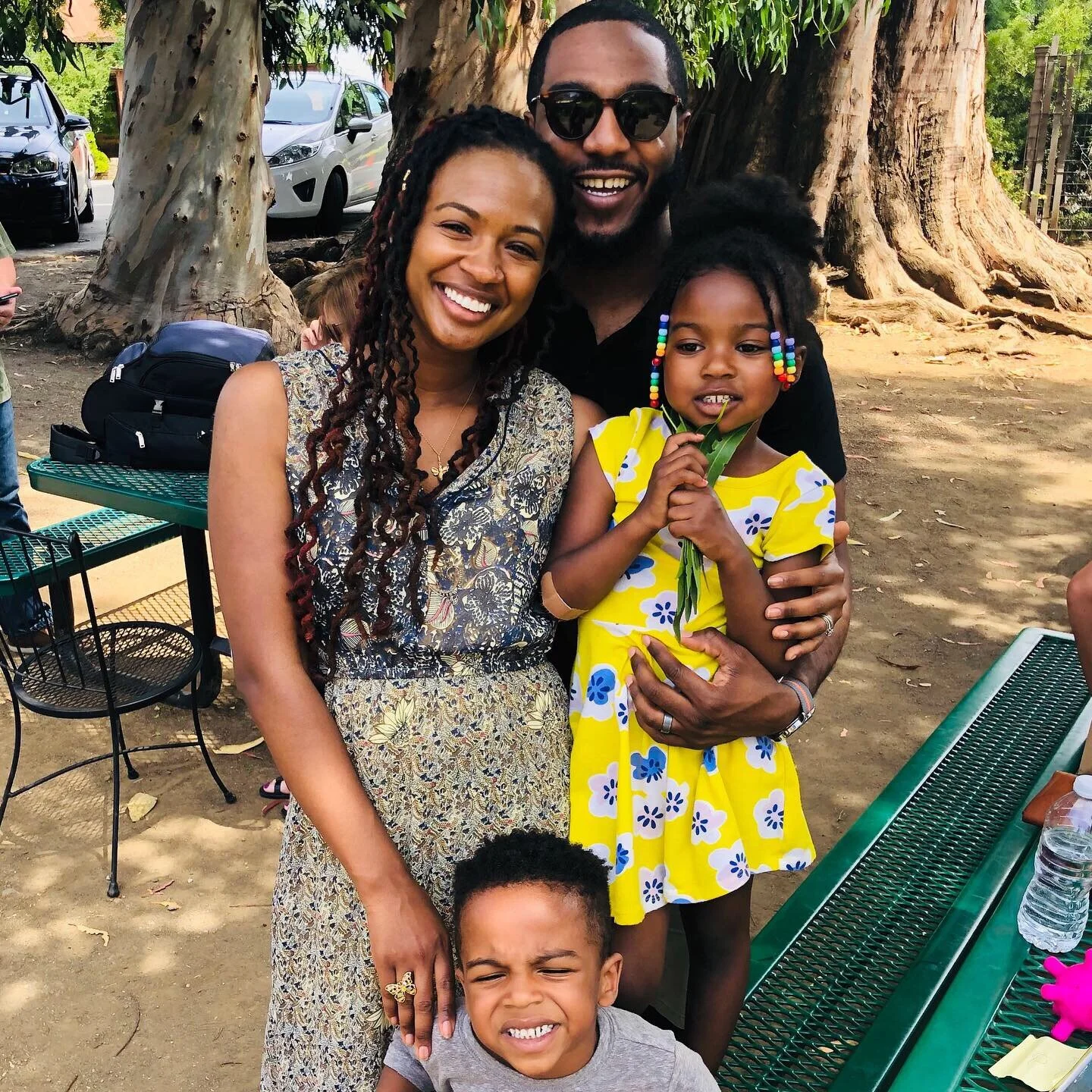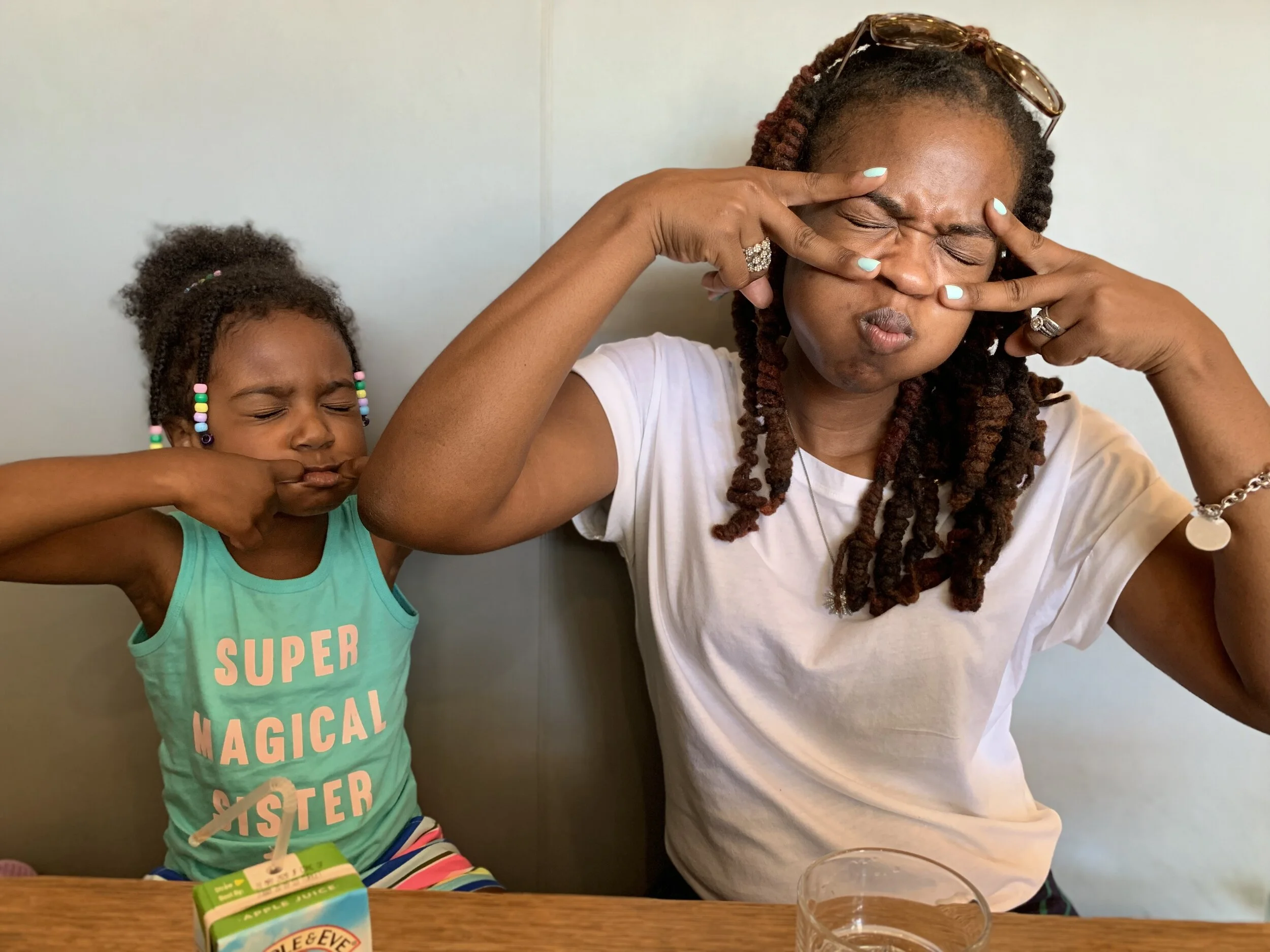Alia McCants, Higher Education Administrator
Thanks for speaking with me, Alia! Can you share what you do?
I lead all prospective student recruitment at Relay Graduate School of Education. So from the first touchpoint at recruitment through team entry and enrollment, I’m responsible for those teams. I’ve been in this role for one month. Before that I was leading the recruitment team and learning for prospective students. I’ve held multiple positions here at Relay if you want to discuss that...
Yes, please, let’s do it! How would you describe your path?
Interesting? (laughs) I’m a curious person and I joined Relay when we were growing really quickly. There were a lot of opportunities to learn and step into new functions. When I was fresh out of grad school, I considered myself more of a skilled generalist -- solving problems and developing systems to sustain those solutions. I started working on a leadership program and then alumni affairs work for a couple years. But then I moved to strategic projects functioning in a way that was almost like an internal consultant, ascertaining what was needed and setting metrics to determine whether or not to launch new campuses. I led our strategic planning process to produce and solidify our first-ever three-year plan.
When I first started at Relay, I had been close to the students. When I moved to more executive work -- with high responsibility, high visibility, high-profile stakeholders -- I didn’t feel as connected to students. So I pivoted to lead the recruitment team so I got to connect with our students to inspire them and encourage them to become teachers. That was satisfying work.
I’m also in a position where I have to align a lot of pieces of our model. For example, we have a couple different teams that grew up as silos, and so now I’m working with those teams to break down those silos. So that’s kind of been my trajectory.
What is the biggest challenge of what you do?
Change management. It’s all about having a clear vision, understanding the people involved, and giving them an opportunity to honor the work they have done, grieve the loss of work that they now must share or pass onto someone else, and understand the new opportunity before them. I also manage a really diverse team of people. I share an identity with some people, and some I don’t. So I focus on making sure I’m leveraging the diversity of our team so all voices can be heard, and so that we are creating an inclusive culture at the organization. I’m modeling these behaviors and practices so they can model for their own teams.
When I left my role leading our internal and external work for our DEI strategic plan, the leadership changed and that body looks very different now. From my current role, I still work with that team. There are a lot of white women who have done a lot of work to be mindful of their privilege and biases, and we’re all working as a team to evolve and grow. But I think it will be a challenge to determine the best way I use my voice in that space and continuing to be mindful of how I show up. It feels different than it did before. I’m also mindful of the fact that this is how it is now, and we do have a diverse bench of emerging leaders coming up.
It’s interesting, this dynamic you bring up of supporting existing leadership while also cultivating a new generation. How has that experience been?
It’s exciting. It keeps my brain busy. I feel very responsible for my teams, for their success, for their happiness. I know I am responsible for a wide swath of Relay’s work, and I feel that responsibility. That means continually thinking about the people, reflecting on how I show up, asking a lot of questions -- I ask so many questions! I’m always checking for their understanding and my own understanding. So it requires a lot of coordination. I find that work deeply satisfying. I like people feeling satisfied and successful in their roles. That’s one of the best parts of my job.
What you’ve described seems as though it requires a balance of harder, more technical skills, and softer, people management skills. What is it like to have to use both of those skill sets?
I’ve had the benefit of having really good experiences that have prepared me. Whether business school with more formal management training or as an informal learner at Relay as I learned how to lead our change management sitting in a variety of different roles since being here. I think that I’m really committed to people, and just having empathy. I hope I can lean on both sets of experiences for future success.
It’s also important to have a sense of what I don’t know. In any organization, a solid change management approach requires having little to no ego. Our mission is what is most important, so if I have trash idea, I want you to tell me. I honestly feel like I have the best team to come up with the best answers, and so it’s about just being comfortable with letting others step in and learning from them.
I also think my position gives me insight into what all of our teams are doing. So I understand the bigger picture but that doesn’t make me an expert. People are experts in their own experiences so it’s important to know what you are and are not able to bring to the table.
How would you describe your leadership style?
Quirky. I think I present as a quirky person. I was an “awkward Black girl” before there was representation of us on screen. (laughs) I think if you ask my team, they’d say I’m a good big-picture thinker who can understand a vision and connect seemingly disparate pieces of information. I think I pair that with a servant-leadership mindset. I see my leadership style in support of my teams. I clear the hurdles so that they can do the work they want to do and do it well. Management and leadership are very different. Who I am as a leader is someone who is focused on building team culture, setting a vision, and remaining humble.
Is there an early moment in your career or education that still influences you today?
I find myself referring a lot to how I felt at Spelman where I attended undergrad. I definitely benefited from learning and growing as a human being, outside of the identity markers that others used to define me up to that point. People see you as a Black woman, but at Spelman everyone was a Black woman, and they were all smart! I try to reference that experience when I describe to people how I want others to feel at work. I want my colleagues to be able to bring their whole identity and not worry about how others might define them. My experience at Spelman gives me the confidence to show up as myself in all spaces because my understanding of who I am came from within, and was developed outside of the white gaze, the male gaze.
That is such an incredible insight. What are you most excited about the future?
So many things. I’m excited my kids are going into kindergarten, and at a traditional public school. I’m excited to have school-aged kids -- I’m very excited for that. I’m also petrified by the journey. (laughs)
I’m also excited to show my kids what it’s like to be a mom who is working at a mission-oriented organization. I just taught them about the Freedom Riders and Diane Nash, who really bent the arc of history in a way that I admire. I want to show my kids that if you care about something so much and believe in it, then you work really hard for it and get good at it. I’m hopeful that my future can have that kind of impact. I really enjoy my work, my team, the people, and so I hope the future contains deeper relationships. We’ve done some really good work that we can build on and smooth out.
And I’m excited to relax and take some trips, spend more anniversaries with my husband, have our dinner together at night. Nothing fancy. But those are the things I’m excited about.
Please share this post with a friend, and follow us at @BlackWomenWorkIG!


